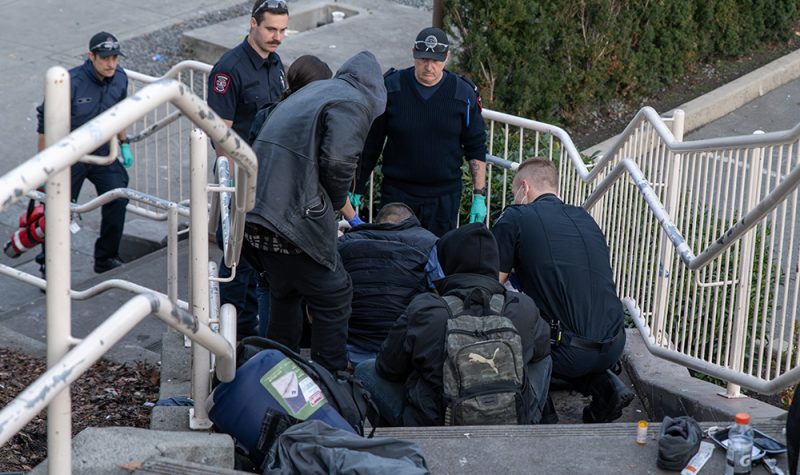Nanaimo Fire Chief Tim Doyle painted a dire picture of the overdose crisis to Nanaimo city council on Monday.
According to Doyle, as of Monday, Nanaimo Fire Rescue have responded to 1,500 overdoses in 2023. Last year, the annual total was 672.
“It is definitely a concern when, as we can see this trend growing with illicit drug overdoses,” he said.”When we look at our calls going from approximately 10,000, to 12,000 and it's looking like over 1000 of those calls. So if we grow by 2,000 calls, over 1,000 of them are going to be overdoses alone>”
According to the latest BC coroners’ report, 89 people in Nanaimo have died from unregulated drugs in the first nine months 2023, surpassing the record of 77 last year.
The Central Vancouver Island area saw 158 deaths, and is on pace to surpass the 167 deaths in 2022.

Nanaimo City Councillor Sheryl Armstrong pointed out that there is no legal requirement for Nanaimo Fire Rescue to respond to medical calls at all.
“There is one other option, which isn't going to be palatable to a lot of people, is that we just instruct them not to go because there's nothing in law that says they need to respond,” she said. “That’s an option that other communities are looking at right now.”
Chief Doyle said Coun. Armstrong was right and that responding to medical calls is a provincial responsibility outlined in the Emergency Health Services Act, however not responding to medical calls would mean that more people could die.
“I think the outcomes for the patients could be significantly compromised in terms of patient outcomes if they don't get timely care and patients deceasing,“ he said. “We often go to patients that don't make it as well, and we often do save patients, and that's a team effort between us and BC Ambulance Service right now.”
Coun. Armstrong clarified that she is not advocating that council direct the fire department to stop responding to medical calls.
“I think it's another point where we can show there's more provincial downloading that we never even think about, and now it's just become normal for us to do it,” she said. “I'm not suggesting by any means that we don't do it. I'm just saying that it is an option.”
Despite being a provincial responsibility, there is no mechanism for the city to bill the province for the ballooning costs associated with the spike in medical calls handled by Nanaimo Fire Rescue.
A city staff report estimated that responding to medical calls in 2022 cost the city $591,954, including $82,121 for low-acuity calls.
The staff report stated that council could ask the province to develop a funding model that would compensate fire departments for the costs of pre-hospital care, an idea that the Union of BC Municipalities endorsed this year.
According to a statement from the Ministry of Health, BC Emergency Health Services spending has increased from $424.3 million in 2016 to $766.2 million. There was also $130 million over three years in the provincial budget to support an increase to the on-call rate for paramedics that will expand ambulance coverage throughout BC.
The ministry says that “BC Emergency Health Services will continue to work closely with its first responder partners to enhance patient care.”
Despite the increase, response times in medical calls have improved from five minutes and three seconds in 2022 to four minutes and 43 seconds in 2023, while the average total time for a medical call fell from 17 minutes and 16 seconds to 15 minutes and 15 seconds.
Listen to CHLY's story below:


